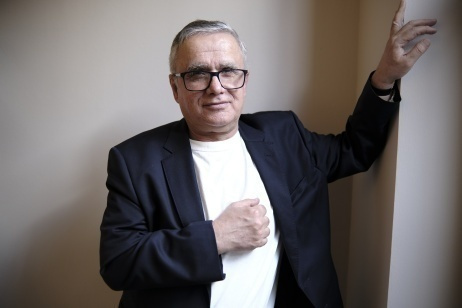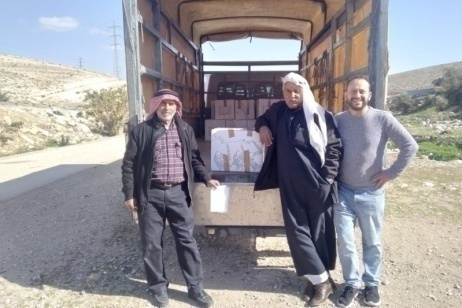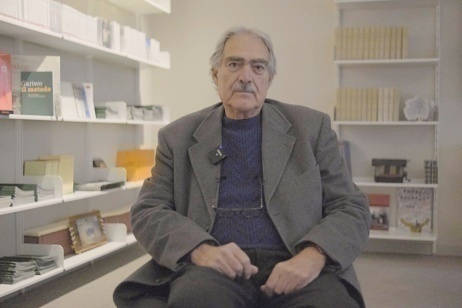
Guelfo Zamboni
We are getting close to 27 January, Holocaust Remembrance Day. This official commemoration, recognized also by the United Nations, is held in different ways in the various countries. We asked Antonio Ferrari, Corriere della Sera editorialist, to tell us how this day is perceived in Greece.
On 27 January the entire world remembers the Holocaust. Hos is this day celebrated in Greece?
Holocaust Remembrance Day nowadays is an international recurrence. The awareness of the Holocaust in Greece is strictly tied with the Jewish community, one of the broadest ones around the Mediterranean Sea before the deportations to the death camps, which today amounts to only a little group concentrated in Thessaloniki and Athens.
The meetings held on 27 January are organized precisely by the Jewish community, that proposes also institutional initiatives. Of course, Holocaust Remembrance Day celebrations are more widespread in Italy, where they now reach really everybody, but this year in Greece there will be events everywhere in this country, in order to respond to the presence of the Golden Dawn party, which identifies with Nazi brown shirts as far as its symbols, expressions and a nearly persecutory intent are concerned.
With specific reference with Golden Dawn, how does the Greek population perceive this party’s negationist stances?
Golden Dawn is not only a negationist movement. It is a para-Nazi party. Its members are against immigrants, Jews and all those who are not Greek – it suffices to notice that the food parcels that are distributed on the streets are delivered only to those who can prove their Greek descent – which goes far beyond Holocaust denial. Greeks are embarassed by the presence of this movement. They are not anti-Semitic, and instead during the war they shared pain and suffering with the Jews. Getting to know that in a country that experienced the fascist dictatorship of the Colonels in the years 1967-1974 someone is reproposing Nazi theories, sounds offensive to them. This is why the Greek, although they were not so involved as the Italians in the recent years (the Italians felt the racial laws favored by fascism nearly as a guilt), are now becoming more involved in commemoration, precisely for the reasons mentioned above.
Starting from these assessments, do you think the Holocaust debate in the Greek public opinion can spread, and reach the younger generations?
I think remembrance is never enough, and thus there is a need for even more participation, of the youths in particular. Even the most aware and sensitive circles there is a need for discussion about the value of remembrance and the struggle against indifference. This is true for the whole of Europe, and even more in Greece because of the presence of Golden Dawn. In fact the young people, who use the Internet and social network in the first place, could be contaminated by all these reductionist or denial theories that mock the Holocaust. It is important to strengthen memory in all possible ways, and this is a key also to understand how Holocaust Remembrance Day de facto turned into a Holocaust Remembrance Week, to make people and especially the younger generation aware of the Holocaust by all possible means
More in general, do you think the celebrations of this Day, as they are conceived now, are effective? Or do you believe it is necessary to rethink them?
Holocaust Remembrance Day is surely effective, in that it exists the way it is for a good reason, but this must not hinder a broader reflection. In this sense I believe the reflection about the Righteous is emblematic. A Righteous is thus not only a Gentile who rescued the life or one of more Jews, but also the people, including Jews, who rescued other Jews or other people. I believe it is important to broaden the philosophical discourse about the Righteous and not limit it to the definition of the Righteous given by the Holy Writs. Gariwo has done through the establishment of European Day of the Righteous on 6 March – a date which is not alternative to 27 January, but instead represents its enrichment and completion. These days I have been working with Vera Vigevani Jarach, a Jewish woman who lost her Grandfather to Auschwitz and her daughter to the death flights in Videla’s Argentina. Her being a witness to two such different tragedies, that cannot been compared to eachother – the Holocaust is the systematic genocide of a people not because it opposes anybody but as an ethnic group to be exterminated, and it is the only genocide case of this kind that we know about – while Videla’s crackdown was a plan to annihilate as many opponents as possible – reminds us of the importance of Holocaust remembrance to highlight other memories, maybe more marginal or of different origin. Hence, if we think of memory as a universal value, we come to recognize every person “doing right things” as Righteous: the Gentile who rescues the Jew, somebody who fights for his or her rights like Neda Soltan in Iran, a man like Mandela who paid his struggle for human rights with 27 years in jail. This is how memory becomes a collective value and not the heritage of just some little chunks of society or the world.
Talking about the Righteous, you have discovered the figure of Guelfo Zamboni. How deeply felt is the example of the Italian consul in Greece?
Zamboni’s figure has many followers, and it is a unique example. If we think of this man – a fascist, who thus executed the orders like all state officials – not only did everything in his power to rescue the Italian Jews, but forged documents also for the Greek Jews, we realize how important he was. The Jewish community of Athens itself remembered that if today there are still some Jews in Greece, this is owed also to the courage of some Italian officials and to the great humane deed performed by Zamboni.
His case is hence particular because it is met in Greece by a great response of social and collective solidarity. Zamboni has been recognized, cherished and brought about as an example by the Greek precisely because of the past relations between our countries. Italy attacked Greece, the Germans stepped in reluctanctly to prevent from our defeat – and carried out the well-known atrocities, but after 8 September, when Germany turned the weapons against Italians, the Greek, who had been attacked by us, tried to rescue us and to help those who were at death risk. This is why, when we talk about the relations with Italy, the Greek audience is so sensitive. The rediscovery of the figure of Zamboni for what he did not only in favour of the Italian Jews, but also for the Greek Jews, is very important also for this reason.






